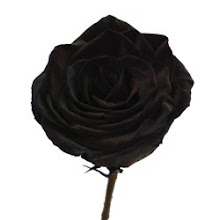 Mustard greens (SAWI)
Mustard greens (SAWI) - Mustard greens provide good to excellent amounts of 9 vitamins, 7 minerals, dietary fiber and protein. They also feature the health-promoting phytonutrients known as
glucosinolates  Turnips
Turnips - Turnips provide an excellent source of vitamin C, fiber, folic acid, manganese, pantothenic acid, and copper. They also offer a very good source of thiamine, potassium, niacin, and magnesium. In addition, they are a good source of vitamin B6 and E, folic acid, and riboflavin.
Turnip greens are more nutrition dense than the root.The greens provide an excellent source of vitamins A, B6, C, E, folic acid, calcium, copper, fiber, and manganese.
 Yams
Yams - Some recent animal studies in which sweet potato helped stabilize blood sugar levels and lowered insulin resistance. (Insulin resistance is a problem caused when cells don't respond to the hormone
insulin, which is supposed to act as a key and unlock the cell in order to allow sugar to pass from the blood into the cell). Some of its blood sugar regulatory properties may come from the fact that sweet potatoes are concentrated in carotenoids. Research has suggested that physiological levels, as well as dietary intake, of carotenoids may be inversely associated with insulin resistance and high blood sugar levels.
 Oranges
Oranges - You may already know that oranges are an excellent source of vitamin C-just one orange supplies 116.2% of the daily value for vitamin C-but do you know just how important vitamin C and oranges are for good health? Vitamin C is the primary water-soluble antioxidant in the body, disarming free radicals and preventing damage in the aqueous environment both inside and outside cells. Inside cells, a potential result of free radical damage to DNA is cancer. Especially in areas of the body where cellular turnover is especially rapid, such as the digestive system, preventing DNA mutations translates into preventing cancer. This is why a good intake of vitamin C is associated with a reduced risk of colon cancer.
 Lemons
Lemons - Lemons contain unique flavonoid compounds that have antioxidant and anti-cancer properties. In addition to their unique phytonutrient properties, lemons are an excellent source of vitamin C, one of the most important antioxidants in nature. Vitamin C is one of the main antioxidants found in food and the primary water-soluble antioxidant in the body. Vitamin C travels through the body neutralizing any free radicals with which it comes into contact in the aqueous environments in the body both inside and outside cells. Free radicals can interact with the healthy cells of the body, damaging them. This is one of the reasons that vitamin C has been shown to be helpful for reducing some of the symptoms of osteoarthritis and rheumatoid arthritis.
Red onions
- Red Onions have more antioxidants than the Yellow or White Onion as they contain the same ones that make blueberries purple so get more bang for your nutritional buck and use Red Onions. Eaten more for flavor and enhancing flavor of other foods, onions are pretty nutritionally devoid. However, they do have antioxidant qualities and are said to lower blood pressure. They also have a little Vitamin C, B6 and folate. Most importantly, the lily family, including Garlic and Onions (not scallions) contain sulfur compounds. Pathogens are deterred by the sulfur and therefore these protect against cancer.
Russet potatoes
- Yams aren't the only tuber to hit a high C note -- one small russet potato provides 56% of your daily vitamin C needs. But the real super "C" in russet potatoes stands for chlorogenic acid -- a phytochemical which not only combats the overall oxidation (the rust, if you will) of our cells, it may block carcinogens particular to cigarettes and some cured meats. Before you go patting yourself on the back for that side of fries you ordered with lunch, consider that most of the chlorogenic acid in russet potatoes resides in the peel. So if you're consuming your potatoes peeled, fried, mashed, whipped or whatever, not only are you depriving yourself of most of this vegetable's antioxidant benefits, you're probably negating any nutritional benefit you might have derived by larding on the butter or ladling on the gravy.
 Collard Greens - As members of the Brassica genus of foods, collards stand out as a nutritional superstar. It's the organosulfur compounds in collards that have been the main subject of phytonutrient research. Although there are over 100 different glucosinolates in plants, only 10-15 are present in collards and other Brassicas. Yet these 10-15 glucosinolates appear able to lessen the occurrence of a wide variety of cancers, including breast and ovarian cancers.
Collard Greens - As members of the Brassica genus of foods, collards stand out as a nutritional superstar. It's the organosulfur compounds in collards that have been the main subject of phytonutrient research. Although there are over 100 different glucosinolates in plants, only 10-15 are present in collards and other Brassicas. Yet these 10-15 glucosinolates appear able to lessen the occurrence of a wide variety of cancers, including breast and ovarian cancers.
Exactly how collards' sulfur-containing phytonutrients prevent cancer is not yet fully understood, but several researchers point to the ability of the glucosinolates and cysteine sulfoxides to activate detoxifying enzymes in the liver that help neutralize potentially carcinogenic substances. For example, scientists have discovered that sulforaphane, a potent glucosinolate phytonutrient found in collards and other Brassica vegetables, boosts the body's detoxification enzymes, potentially by altering gene expression, thus helping to clear potentially carcinogenic substances more quickly.
 Spinach
Spinach - Researchers have identified at least 13 different flavonoid compounds in spinach that function as antioxidants and as anti-cancer agents. The anticancer properties of these spinach flavonoids have been sufficiently impressive to prompt researchers to create specialized spinach extracts that could be used in controlled studies. These spinach extracts have been shown to slow down cell division in stomach cancer cells, and in studies on laboratory animals, to reduce skin cancers. A carotenoid found in spinach and other green leafy vegetables fights human prostate cancer two different ways, according to research published in the the Journal of Nutrition. The carotenoid, called neoxanthin, not only induces prostate cancer cells to self-destruct, but is converted in the intestines into additional compounds which put prostate cancer cells into a state of stasis, thus preventing their replication.










.jpg)

















 Mustard greens (SAWI)
Mustard greens (SAWI) Turnips - Turnips provide an excellent source of vitamin C, fiber, folic acid, manganese, pantothenic acid, and copper. They also offer a very good source of thiamine, potassium, niacin, and magnesium. In addition, they are a good source of vitamin B6 and E, folic acid, and riboflavin.
Turnips - Turnips provide an excellent source of vitamin C, fiber, folic acid, manganese, pantothenic acid, and copper. They also offer a very good source of thiamine, potassium, niacin, and magnesium. In addition, they are a good source of vitamin B6 and E, folic acid, and riboflavin. Yams - Some recent animal studies in which sweet potato helped stabilize blood sugar levels and lowered insulin resistance. (Insulin resistance is a problem caused when cells don't respond to the hormone insulin, which is supposed to act as a key and unlock the cell in order to allow sugar to pass from the blood into the cell). Some of its blood sugar regulatory properties may come from the fact that sweet potatoes are concentrated in carotenoids. Research has suggested that physiological levels, as well as dietary intake, of carotenoids may be inversely associated with insulin resistance and high blood sugar levels.
Yams - Some recent animal studies in which sweet potato helped stabilize blood sugar levels and lowered insulin resistance. (Insulin resistance is a problem caused when cells don't respond to the hormone insulin, which is supposed to act as a key and unlock the cell in order to allow sugar to pass from the blood into the cell). Some of its blood sugar regulatory properties may come from the fact that sweet potatoes are concentrated in carotenoids. Research has suggested that physiological levels, as well as dietary intake, of carotenoids may be inversely associated with insulin resistance and high blood sugar levels. Oranges - You may already know that oranges are an excellent source of vitamin C-just one orange supplies 116.2% of the daily value for vitamin C-but do you know just how important vitamin C and oranges are for good health? Vitamin C is the primary water-soluble antioxidant in the body, disarming free radicals and preventing damage in the aqueous environment both inside and outside cells. Inside cells, a potential result of free radical damage to DNA is cancer. Especially in areas of the body where cellular turnover is especially rapid, such as the digestive system, preventing DNA mutations translates into preventing cancer. This is why a good intake of vitamin C is associated with a reduced risk of colon cancer.
Oranges - You may already know that oranges are an excellent source of vitamin C-just one orange supplies 116.2% of the daily value for vitamin C-but do you know just how important vitamin C and oranges are for good health? Vitamin C is the primary water-soluble antioxidant in the body, disarming free radicals and preventing damage in the aqueous environment both inside and outside cells. Inside cells, a potential result of free radical damage to DNA is cancer. Especially in areas of the body where cellular turnover is especially rapid, such as the digestive system, preventing DNA mutations translates into preventing cancer. This is why a good intake of vitamin C is associated with a reduced risk of colon cancer. Lemons - Lemons contain unique flavonoid compounds that have antioxidant and anti-cancer properties. In addition to their unique phytonutrient properties, lemons are an excellent source of vitamin C, one of the most important antioxidants in nature. Vitamin C is one of the main antioxidants found in food and the primary water-soluble antioxidant in the body. Vitamin C travels through the body neutralizing any free radicals with which it comes into contact in the aqueous environments in the body both inside and outside cells. Free radicals can interact with the healthy cells of the body, damaging them. This is one of the reasons that vitamin C has been shown to be helpful for reducing some of the symptoms of osteoarthritis and rheumatoid arthritis.
Lemons - Lemons contain unique flavonoid compounds that have antioxidant and anti-cancer properties. In addition to their unique phytonutrient properties, lemons are an excellent source of vitamin C, one of the most important antioxidants in nature. Vitamin C is one of the main antioxidants found in food and the primary water-soluble antioxidant in the body. Vitamin C travels through the body neutralizing any free radicals with which it comes into contact in the aqueous environments in the body both inside and outside cells. Free radicals can interact with the healthy cells of the body, damaging them. This is one of the reasons that vitamin C has been shown to be helpful for reducing some of the symptoms of osteoarthritis and rheumatoid arthritis. - Red Onions have more antioxidants than the Yellow or White Onion as they contain the same ones that make blueberries purple so get more bang for your nutritional buck and use Red Onions. Eaten more for flavor and enhancing flavor of other foods, onions are pretty nutritionally devoid. However, they do have antioxidant qualities and are said to lower blood pressure. They also have a little Vitamin C, B6 and folate. Most importantly, the lily family, including Garlic and Onions (not scallions) contain sulfur compounds. Pathogens are deterred by the sulfur and therefore these protect against cancer.
- Red Onions have more antioxidants than the Yellow or White Onion as they contain the same ones that make blueberries purple so get more bang for your nutritional buck and use Red Onions. Eaten more for flavor and enhancing flavor of other foods, onions are pretty nutritionally devoid. However, they do have antioxidant qualities and are said to lower blood pressure. They also have a little Vitamin C, B6 and folate. Most importantly, the lily family, including Garlic and Onions (not scallions) contain sulfur compounds. Pathogens are deterred by the sulfur and therefore these protect against cancer. - Yams aren't the only tuber to hit a high C note -- one small russet potato provides 56% of your daily vitamin C needs. But the real super "C" in russet potatoes stands for chlorogenic acid -- a phytochemical which not only combats the overall oxidation (the rust, if you will) of our cells, it may block carcinogens particular to cigarettes and some cured meats. Before you go patting yourself on the back for that side of fries you ordered with lunch, consider that most of the chlorogenic acid in russet potatoes resides in the peel. So if you're consuming your potatoes peeled, fried, mashed, whipped or whatever, not only are you depriving yourself of most of this vegetable's antioxidant benefits, you're probably negating any nutritional benefit you might have derived by larding on the butter or ladling on the gravy.
- Yams aren't the only tuber to hit a high C note -- one small russet potato provides 56% of your daily vitamin C needs. But the real super "C" in russet potatoes stands for chlorogenic acid -- a phytochemical which not only combats the overall oxidation (the rust, if you will) of our cells, it may block carcinogens particular to cigarettes and some cured meats. Before you go patting yourself on the back for that side of fries you ordered with lunch, consider that most of the chlorogenic acid in russet potatoes resides in the peel. So if you're consuming your potatoes peeled, fried, mashed, whipped or whatever, not only are you depriving yourself of most of this vegetable's antioxidant benefits, you're probably negating any nutritional benefit you might have derived by larding on the butter or ladling on the gravy. Collard Greens
Collard Greens Spinach - Researchers have identified at least 13 different flavonoid compounds in spinach that function as antioxidants and as anti-cancer agents. The anticancer properties of these spinach flavonoids have been sufficiently impressive to prompt researchers to create specialized spinach extracts that could be used in controlled studies. These spinach extracts have been shown to slow down cell division in stomach cancer cells, and in studies on laboratory animals, to reduce skin cancers. A carotenoid found in spinach and other green leafy vegetables fights human prostate cancer two different ways, according to research published in the the Journal of Nutrition. The carotenoid, called neoxanthin, not only induces prostate cancer cells to self-destruct, but is converted in the intestines into additional compounds which put prostate cancer cells into a state of stasis, thus preventing their replication.
Spinach - Researchers have identified at least 13 different flavonoid compounds in spinach that function as antioxidants and as anti-cancer agents. The anticancer properties of these spinach flavonoids have been sufficiently impressive to prompt researchers to create specialized spinach extracts that could be used in controlled studies. These spinach extracts have been shown to slow down cell division in stomach cancer cells, and in studies on laboratory animals, to reduce skin cancers. A carotenoid found in spinach and other green leafy vegetables fights human prostate cancer two different ways, according to research published in the the Journal of Nutrition. The carotenoid, called neoxanthin, not only induces prostate cancer cells to self-destruct, but is converted in the intestines into additional compounds which put prostate cancer cells into a state of stasis, thus preventing their replication.













